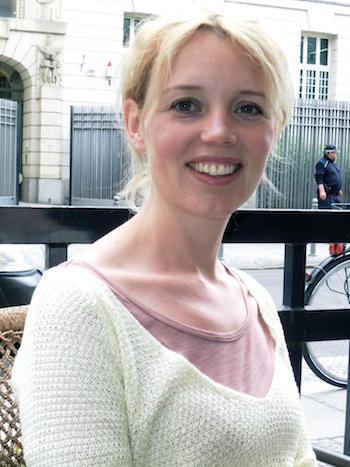Anna Katharina Schaffner

Anna Katharina Schaffner is Reader in Comparative Literature and Medical Humanities at the University of Kent in the United Kingdom.
Book
Schaffner wrote a book, Exhaustion: A History, published in 2016, that tries to give a brief historical view of the concept of "exhaustion" throughout many eras, with chapters titles, such as, Humors, Sin, Saturn, Nerves, Depression, Burnout, and others.[1]
Although scientifically and historically inaccurate on many accounts (see the blog entry Age of Ignorance, the section that is generating the most ire is the chapter called "Mystery Viruses", in which ME and CFS patients are described as violent: "A strong, at times even violent, antipsychiatric and antipsychoanalytical stance is in fact a defining characteristic of many CFS patients and activist groups[2]......many patients react angrily, and some violently, to suggestions that their illness might not be organic is question[3]...[and medical historian Edward Shorter] emphasizes that the rejection of psychiatric diagnoses by chronic fatigue patients is much more violent than 'are the normal reactions of medical patients to psychiatric consultation, and is itself a characteristic of the illness.'"[4]
Criticism by patients stems from Schaffner's heavy use of a psychological etiology to explain ME and CFS on the basis of a lack of pathophysiological evidence of disease, even though patients point to the conclusions of the 2015 Institute of Medicine report which finalized that the disease is not psychological.[5]
Reviews
In the 2 Aug 2016 blog entry of Utting-Wolff Spouts, the bloggers expounded on the unscientific premises of the Schaffner's theory: "Her poor scientific understanding, particularly apparent in her chapter on ME, is revealed in statements including ‘the ozone layer is shrinking at an alarming rate’ (actually it’s recovering). Her inability to differentiate between carbon monoxide and carbon dioxide is revealing ‘carbon monoxide emissions are still high’, no doubt they are but she means carbon dioxide (CO2‘s a direct greenhouse gas, CO is not2). Call me pedantic but an inability to understand basic science casts doubt on her ability to engage in discussion of a disease as complex as ME...Schaffner is not original, she follows a long, undistinguished line of cod philosophers who think they can explain away chronic illness in a non-scientific fashion, and why not? Real science is hard; molecular biology is hard, signalling pathways are complex as is the immune system. Why waste time and energy studying this when you can claim it is all imagined, after all, you have a good chance of gaining a knighthood without any of the hard work."[6]
Learn more
- 2016, Who has control of the story? - Anna Katharina Schaffner's EXHAUSTION (Nasim Marie Jafry)
- 2016, The Age of Ignorance
- 2016, How Exhaustion Became a Status Symbol
See also
References
- ↑ Schaffner, A. K. (2016). Exhaustion: A History. New York & West Sussex, Columbia University Press.
- ↑ Schaffner, A. K. (2016). Exhaustion: A History. New York & West Sussex, Columbia University Press. p 190
- ↑ Schaffner, A. K. (2016). Exhaustion: A History. New York & West Sussex, Columbia University Press. p 191
- ↑ Schaffner, A. K. (2016). Exhaustion: A History. New York & West Sussex, Columbia University Press. pp 193-194
- ↑ Book gets ME/CFS wrong?
- ↑ Gillberg, C. and Jones, G. (2 Aug 2016). The Age of Ignorance [Utting-Wolff Spouts]. Retrieved from https://uttingwolffspouts.com/2016/08/02/the-age-of-ignorance/

